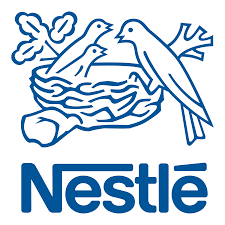An investigative report published recently by Public Eye, a Switzerland-based non-governmental organisation, has revealed disconcerting findings on infant food products made by Nestlé. The Swiss FMCG giant’s two best-selling brands, Cerelac and Nido, have high levels of added sugar in the form of sucrose and honey in low and middle-income countries, while surprisingly these products are sugar-free in Switzerland, the brand’s home country, and in other European nations, according to the report. This double standard has been called out by some as corporate racism.
The investigation by Public Eye in collaboration with International Baby Food Action Network delved into the practices of the renowned brand. The research was based on tests carried out on Nestlé products in a laboratory in Belgium. The resulting report, titled “How Nestle gets children hooked on sugar in lower-income countries” highlighted the brand’s inconsistent nutritional standards across different countries. It criticised the company for failing to provide clear information about the sugar content in its products. Shockingly, out of the 115 Nestlé products analysed, 108 were found to contain added sugars in markets in Asia, Africa, and Latin America.
Cerelac baby cereals, designed for infants aged six months and above, have been found to contain added sugar levels of around four grams per serving on average, equivalent to approximately one sugar cube. In the Philippines, the highest amount of added sugar per serving at 7.3 grams was reported, whereas in India, where sales exceeded 250 million US dollars in 2022, the added sugar content per serving is 2.7 grams. Similarly, Nido powdered milk products, intended for children aged 1-3 years, contain an average of nearly two grams of added sugar per serving. In Panama, it was found to have the highest added sugar content per serving at 5.3 grams.
“On the eve of its Annual General Meeting, a petition demands that Nestlé put an end to this unjustifiable and harmful double standard, which contributes to the explosive rise of obesity and leads children to develop a life-long preference for sugary products… While Nestlé recommends publicly to avoid baby foods that contain added sugar, it takes advantage of the weakness of existing regulations to continue selling such products in lower-income countries,” the report said.
Meanwhile, in response to the findings of the report, the Union Consumer Affairs Ministry has directed the Food Safety and Standards Authority of India (FSSAI) to take necessary action against the company.
Nestlé has a history of being embroiled in controversies. Previously, their Maggi instant noodles were banned in the country due to the presence of MSG (monosodium glutamate) and lead, with the latter surpassing Nestle India’s stated levels by over one thousand times. Between 5 June and 1 September, 2015, around 38,000 tonnes of Maggi were removed from stores nationwide and subsequently disposed of
While MNCs like Nestle and Johnson & Johnson, whose baby products were found having carcinogenic substances, are definitely at fault, the clear lack of regulatory guidelines in countries like India cannot be overstated. MNCs are attracted towards India as it is the world’s largest consumer market but unfortunately our governments have been bending backwards and are more than willing to accommodate these companies even at the cost of the population’s health and well-being simply because of the immense kickbacks that these multinationals offer.

